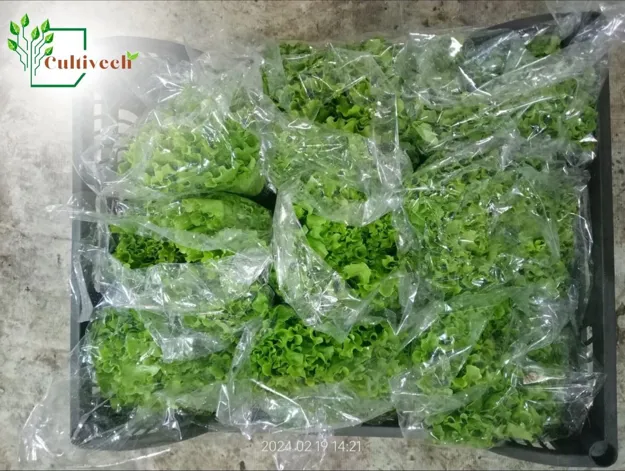
For the first time, the team with Cultivech exported Egyptian, hydroponically grown lettuce to South Asia. With trials, education, and technical support, they are hoping to expand the hydroponically grown acreage in Egypt, as business development manager Nermeen Embaby believes it to be a solution for current and upcoming challenges in the Egyptian fresh produce industry.
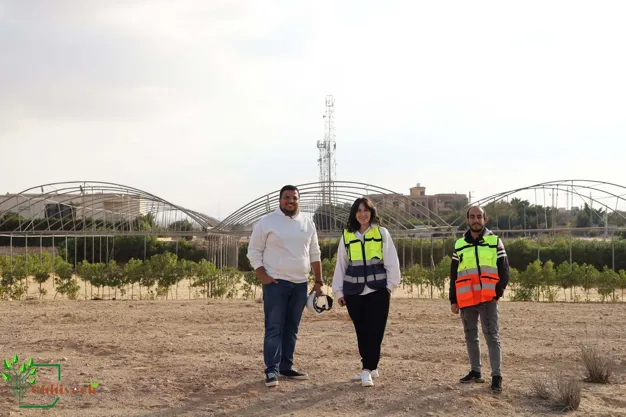
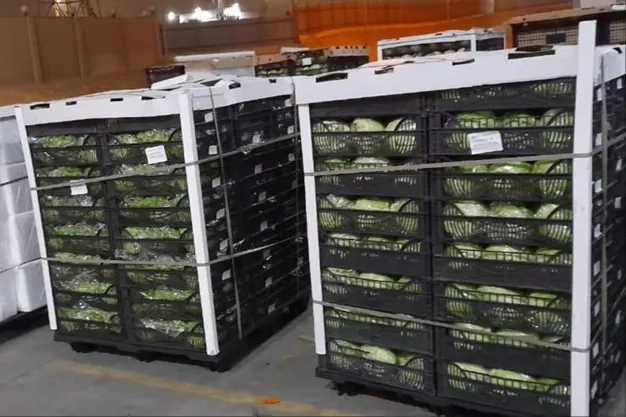
Hydroponically grown produce
Egyptian export company Cultivech sources their fresh produce from local growers, partly open field, but with a focus on hydroponically grown produce. "Our primary goal is to provide a clean and premium leafy greens and fruity vegetables worldwide, which is why we focus on delivering hydroponic products: they meet the market standards, ensuring the customers satisfaction", says Nermeen, adding that there are quite some hydroponic set-ups in Egypt from which they can collect the product to export.
"The majority of them are in the proximity of Cairo. But we expect that as the expansion continues and people accept the ideas behind this way of growing, it will become a massive market. Currently, it's the pesticides that are used to overcome the soil-borne pests, such as nematodes. It affects the peoples health, the quality of the product and it makes the produce invalid for export, as the MRLs extend the range. Nowadays water is not an issue, but we expect it to become one in the future."
As she believes in the industry, the supply of hydroponic growing systems is included in the Cultivech business activities. "We design, construct and consult, and help the growers with education on the system and training of the people. As it's often a new technology, we also provide technical support to them. When they are up and running, we can acquire their product and export it." She shows photos of one of the growers she works with. "They are expanding from 2 to 17 spans after trying it for one year only. He saw the difference in the crop, and in the final results."
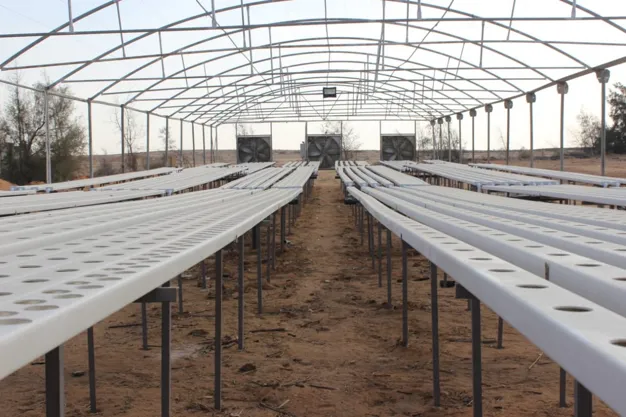
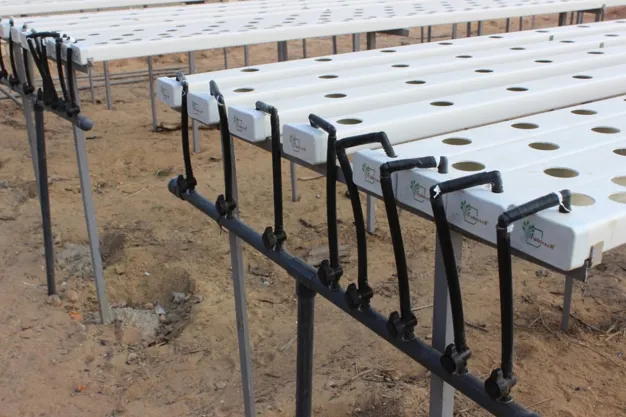
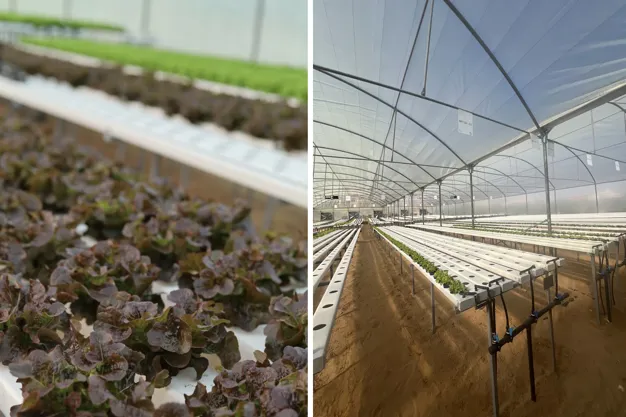
Hard to prove
However, Nermeen notes that currently, existing growers are not keen on switching from traditional to hydroponic agriculture. "Growing hydroponically can provide an answer to the Egyptian challenges, but growers need to see how it can help them, and it's proven hard to do so. They often have to experience a withdrawal themselves before they believe us."
This is why the Cultivech team partners up with local growers, and starts trials to show the possibilities of several types of growing. "We've hired a span from a customer and shown them how you can produce many more leafy greens in an NFT system. We do research about the deep water culture techniques, and show growers the different solutions." She explains there's several options to set up a facility, depending factors such as the chosen crop, climate circumstances and investment possibilities.
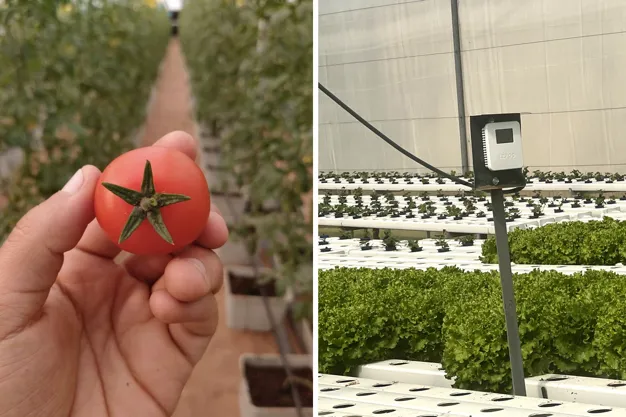
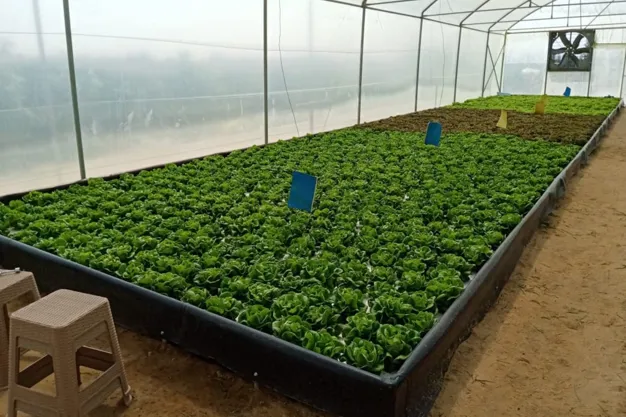
Strawberry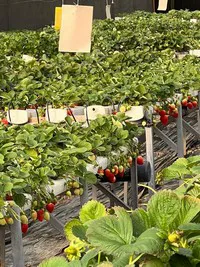
In addition, they also set up a hydroponic strawberry trial, which doubles as an R&D centre. "There's currently no hydroponic strawberry growing facilities in Egypt, and we want to research the results in our R&D so we can share the options and numbers with growers and tell them if it will be interesting to start growing strawberries in these systems."
She shows the semi-automated system that was installed in the greenhouse. "We want it to be cost effective, and use it to show growers what they can reach when growing hydroponically. We also try different varieties, and growing media, as well as fresh and frozen young plants."
For the strawberry set-up, Cultivech partnered with a local exporter. His clients ask for strawberries, but he wants to ensure the quality he sends out is good, as they will have his name on it. His primary business includes the export of olives, and the focus on quality has proved to be important for the success of his business. Hydroponically grown strawberries are a chemical-free product of consistent quality, and will help him continue to expand his brand, which is why he teamed up with us to do the trial in the hydroponic system."
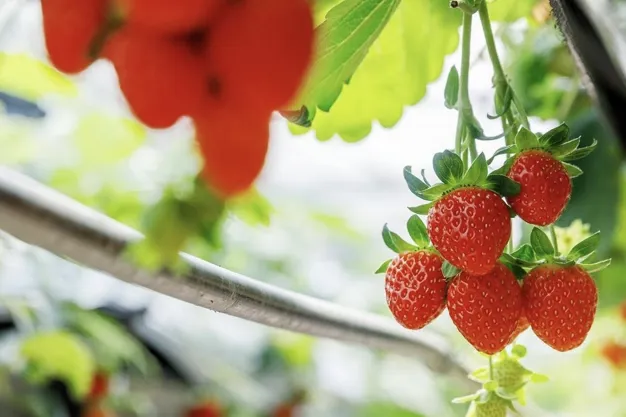
As might be clear: there's a lot going on within Cultivech. Aside from their hydroponic activities, they recently also completed the first export of hydroponically grown lettuce, including several types of Batavia and full grown lettuce heads, to South Asia. "When exporting our produce to South Asia for the first time, we've taken several factors into consideration. Market research, cost analysis, logistical requirements, and compliance with import regulations," Nermeen sums up. "We're also looking to export to the Middle East: Saudi Arabia, and the UAE are highly interesting. We also have the certificates to export to Europe, and are looking for the customers with good payment terms."
For more information:
Cultivech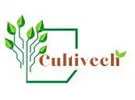
X8M8+
J3 Maadi
+2001050902945
[email protected]
www.cultivech.com
